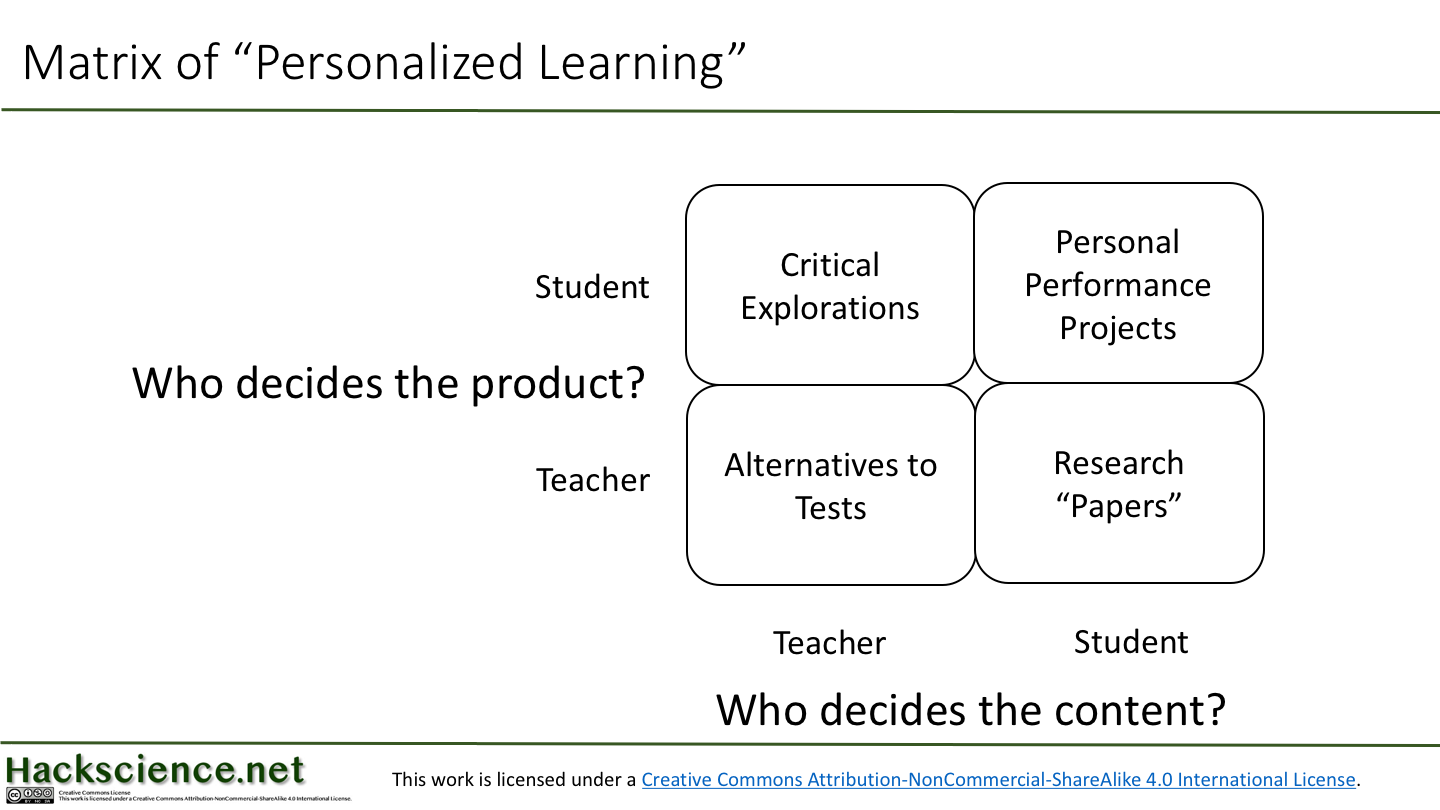Educators hear “personalized learning” is almost every professional conversation, conference description, in-service training, graduate course, or other discussion of “the future of education.” I have long been a user of “personalized learning” in my classrooms including the course I teach for teachers, and I must admit being quite frustrated with the current rhetoric.
We are all familiar with teachers’ habit of applying any new term to any existing classroom practice. This is done in hopes of avoiding the need to change anything they do in the classroom. This habit is also adopted by consultant who build their practices around “coaching” teachers to adopt whatever is the newest practice anointed to be the one to deliver schools to the promised land of measurable outcomes.
In the 30 years that I have been using “personalized learning,” I know there are vastly different types of activities that can be (are have been) given the label. Each has a role in a complete education, and good teachers are likely to use all of them in their classrooms without differentiating or labeling them. Further, good teachers will use each of these and not rely on one as “the way I do personalized learning.”
I perceive four different types of personalized learning and they are differentiated by the answers to the questions “Who decides the product?” and “Who decides the content?” each of which is answered by either “Student” or “Teacher.”

Critical Explorations find teachers introducing an idea or topic to a group of students. This is often done with an artifact or an observation. Once it is explored through a teacher-led process, students find a point of entry that becomes the focus of their own inquiry and performance. A critical exploration does end with each student producing and sharing something that demonstrates what they learned; the performance typically assumes the unique perspective of the student as well.
Personal Performance Projects find students defining a topic and a product that will result from their work. The product of a personal performance project is typically something that would be of interest and value to a professional working in a relevant field. Work on a personal performance project often extends months.
Alternatives to Tests is the broadest of the four types of personalized learning. The “projects” that teachers assign to students as part of regular classroom activities and that are part of teachers’ strategy to make the curriculum more interesting and to allow for observing learning in methods other than tests are included here.
Research “Papers” are a form of personalized learning in which the teacher defines the nature of the product and the process, but the students decides the question to be answered or the organization of the presentation. When adopting this method of personalized learning, teachers follow the “write-according-to-the-rules-expected-by-the-audience” model used in science writing, journalism, or other fields that follow style guides.